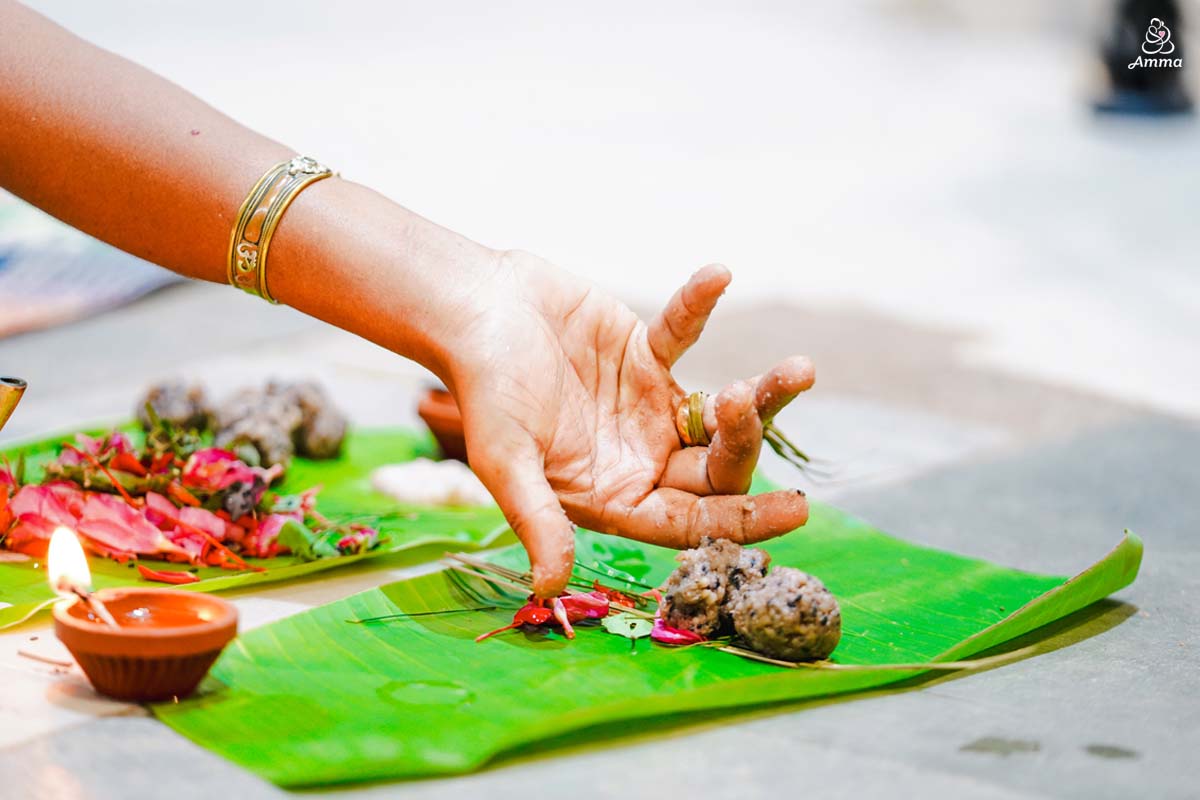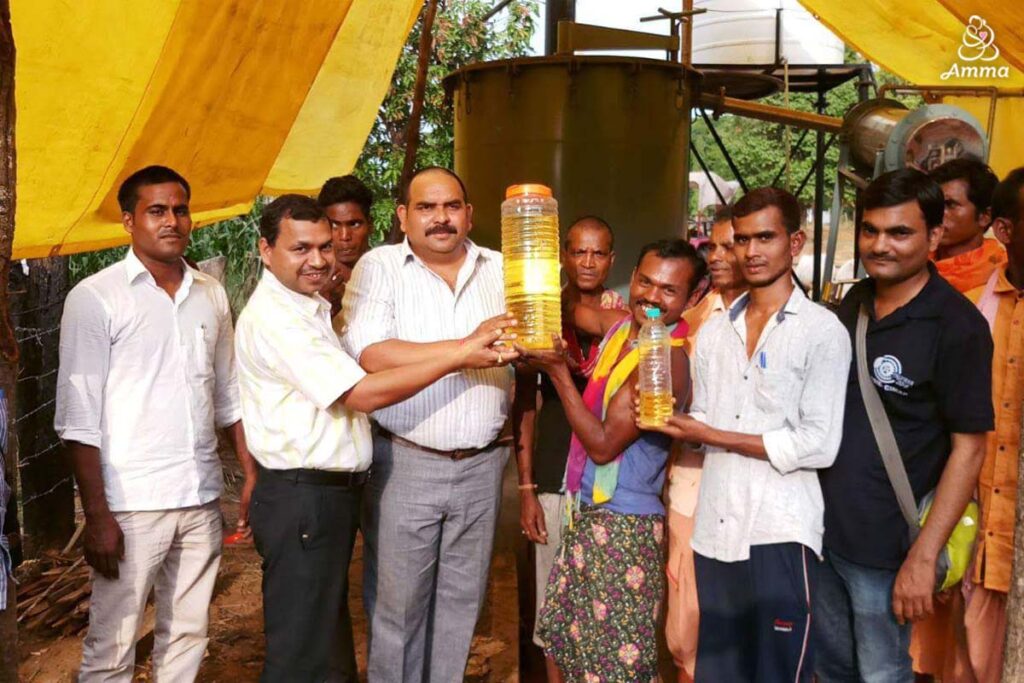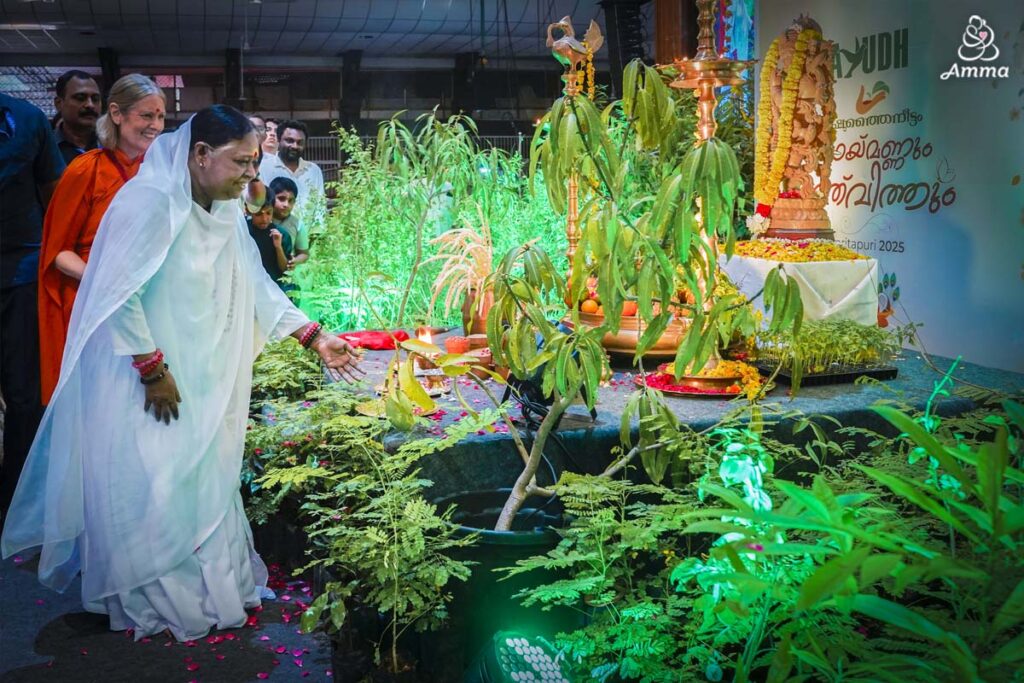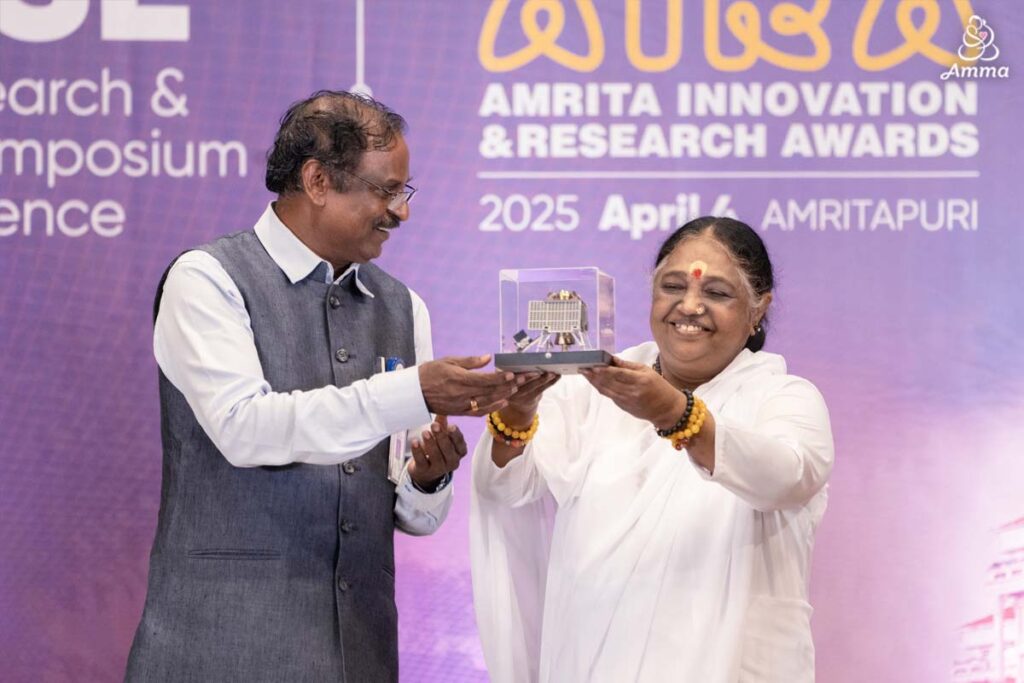Vavubali is an ancient tradition in Kerala where people perform a ceremony to show gratitude towards our ancestors and Mother Nature. This year, 2,873 online viewers from around the world joined the traditional rites in Amritapuri, participating in 14 languages.
It is an annual ritual that takes place on the new moon day of the Malayali month of Karkidaka, which falls in July or August. Ancestral worship, pitru puja, is practised across India under different names on different dates, but the essential meaning is the same.
Through this year’s global sharing from the Ashram, Vavubali’s merits even transcended the parametres of culture, space, and time.
“Vavubali has been such a healing ritual for me. I am not well connected with my family. Our family is spread apart in 3 continents, and we are not so close physically or emotionally,” shared Rosario Kerekes, who took part in Amritapuri. She was born in Bogotá, Colombia and also lived in Toronto, Canada.
“Doing the pujas helped me find an inner connection with my family. It gave me a chance to express love to them on a subtle level, especially the deceased.”
The first set of rites was done in Malayalam with people from throughout the Ashram area in attendance, their hearts deeply moved to participate in such a profound tradition at Amma’s birth place. Swami Turyamritananda Puri, one of her first disciples, lit the sacred lamp, and Brahmachari Achyutamrita Chaitanya led the pujas.
Brahmachari Harikrishnan led the second set in English with translation in all other languages. He took kind care to explain the significance of each step of the prayers and offerings.
The online participants included 868 in English, 506 in Malayalam, 331 in French, 320 in Italian, 268 in Japanese, 248 in Tamil, 130 in Spanish, 53 in German, 45 in Kannada, 38 in Portuguese, 33 in Finnish, 16 in Telugu, 12 in Russian, and 5 in Turkish.
If your intention is pure when making offerings towards departed souls, the result will reach them even if they have taken another birth.
Amma
Br Harikrishnan shared that according to Sanatana Dharma, the soul of a being after death gets another birth. It can be either as a human, a celestial being, or even an animal or plant. It is decided by the sum total of the punya and papa, the merits and demerits. These calculations are generally termed as karma vipaka. According to the accumulative results, we will get a new birth.
“Because the vibrations of our subtle body are in tune with that of seven generations, we have the opportunity to offer part of good karma earned by us to our ancestors’ souls. In the pujas, we give not only the essence of food, but also our merits in gratitude, for their liberation and all souls who are suffering,” said Br Harikrishnan.
“Why gratitude? Because from the moment of birth and even conception, and every moment of life thereafter, our existence is sustained by the interaction of a huge number of forces. So, for all what we receive, we have to give back something.”
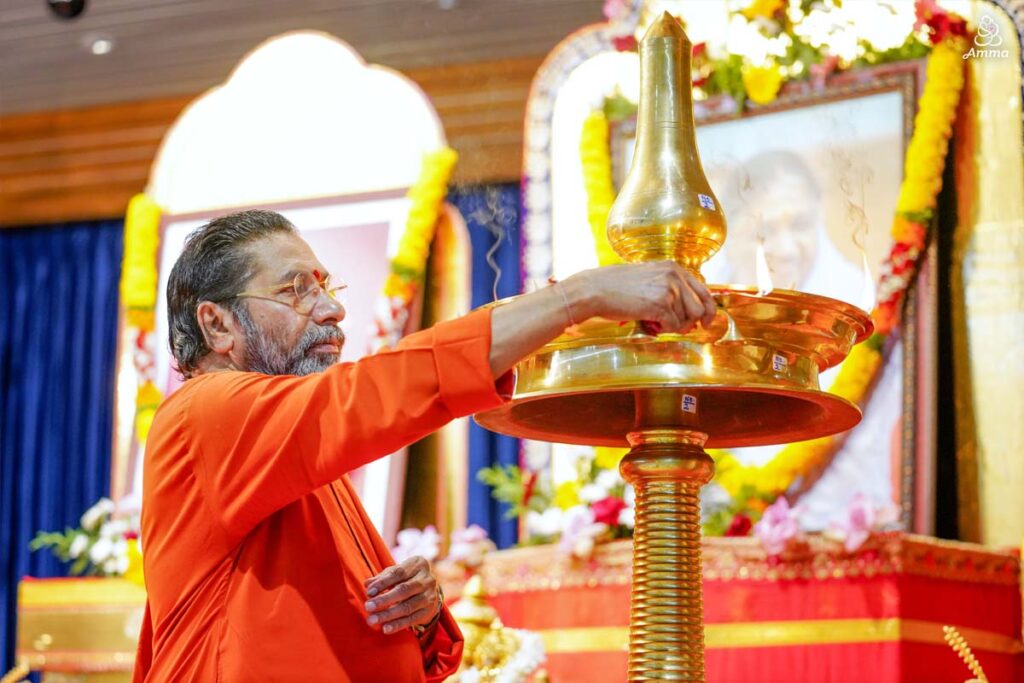
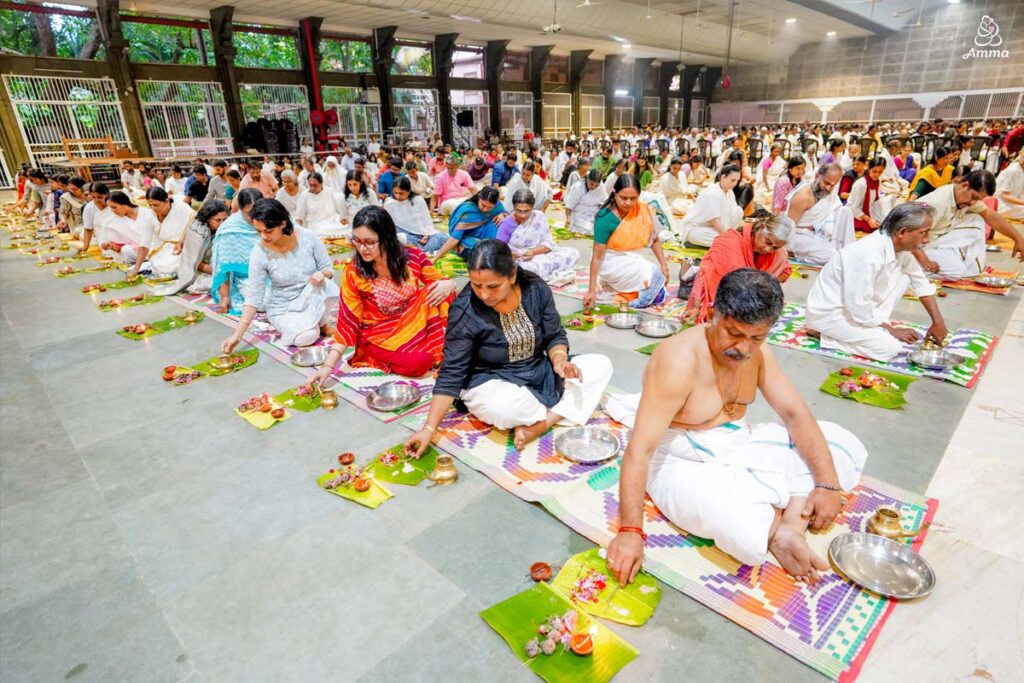
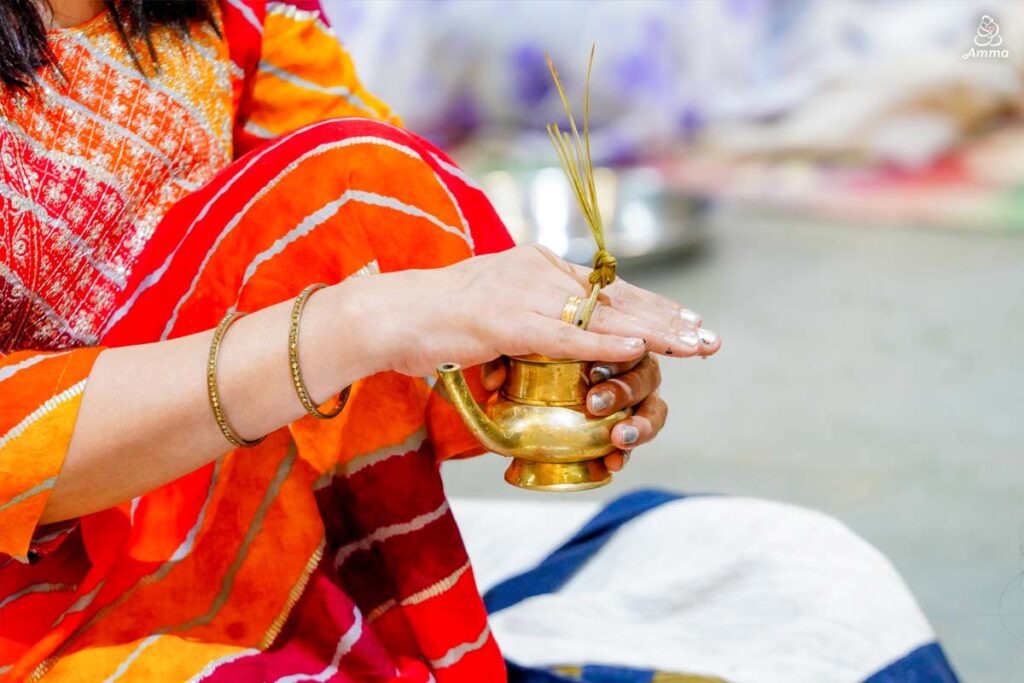
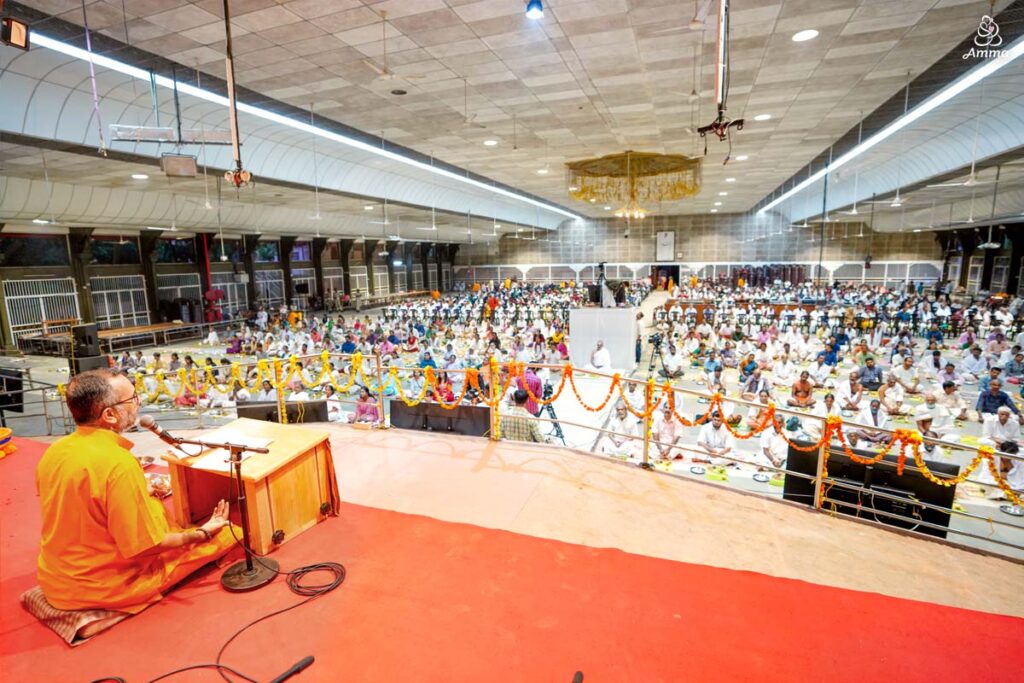
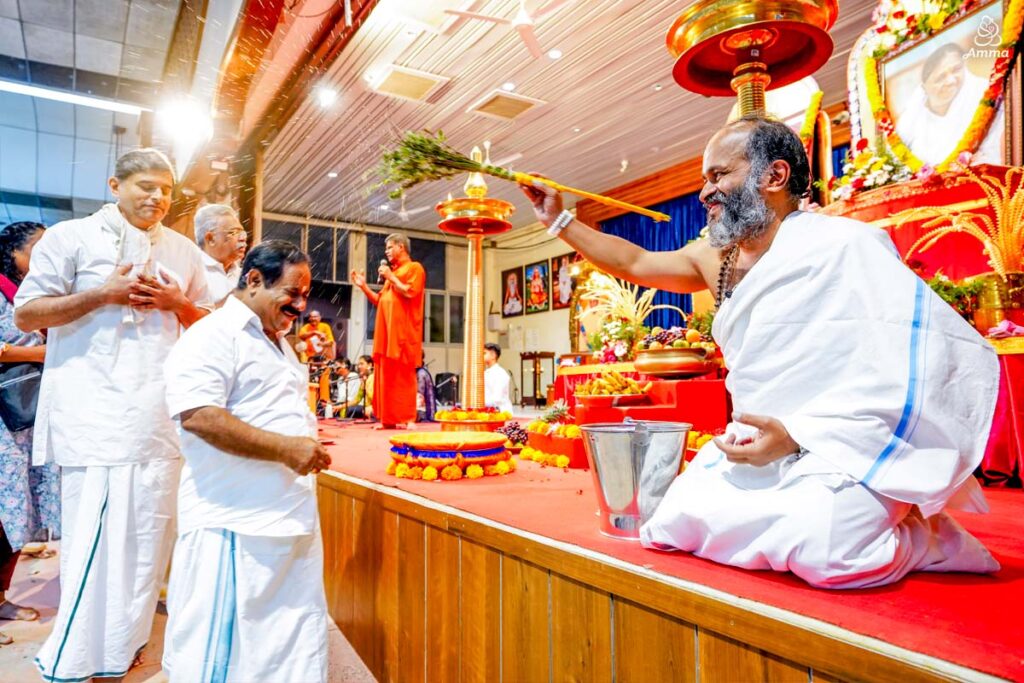
Vavubali recognises three forms of indebtedness humankind carries. The first is to God’s powers, or natural powers. Next is to the Rishis, the ancient realised spiritual masters who imparted Supreme knowledge to humanity. The final is to our ancestors, our genetic lineage.
During the ceremonies, participants offer specially prepared rice balls called pinda to their ancestors—pitru yajña. After the puja is over, they are left in nature to be consumed by birds, fish, animals or insects. This becomes bhūta yajña, an offering to all the world’s creatures.
Through the ritualistic offering of water, known as tharppanam, debts are paid off to the natural powers and the self-realised masters. This becomes deva yajña and ṛiṣi yajña.
Along with the pujas, people also feed the poor and distribute clothes to those in need. In this day and age, it includes donating to charitable causes. This becomes nṛi yajña—serving humankind.
When we follow these traditions, we realise that we are all links in a common chain. It is an undeniable relationship between the entire universe and every living creature within it.
Vavubali, the ancestral puja, thus becomes a brahma yajña. Together these five great offerings are the pancha maha yajña described in the sacred scriptures of Sanatana Dharma.
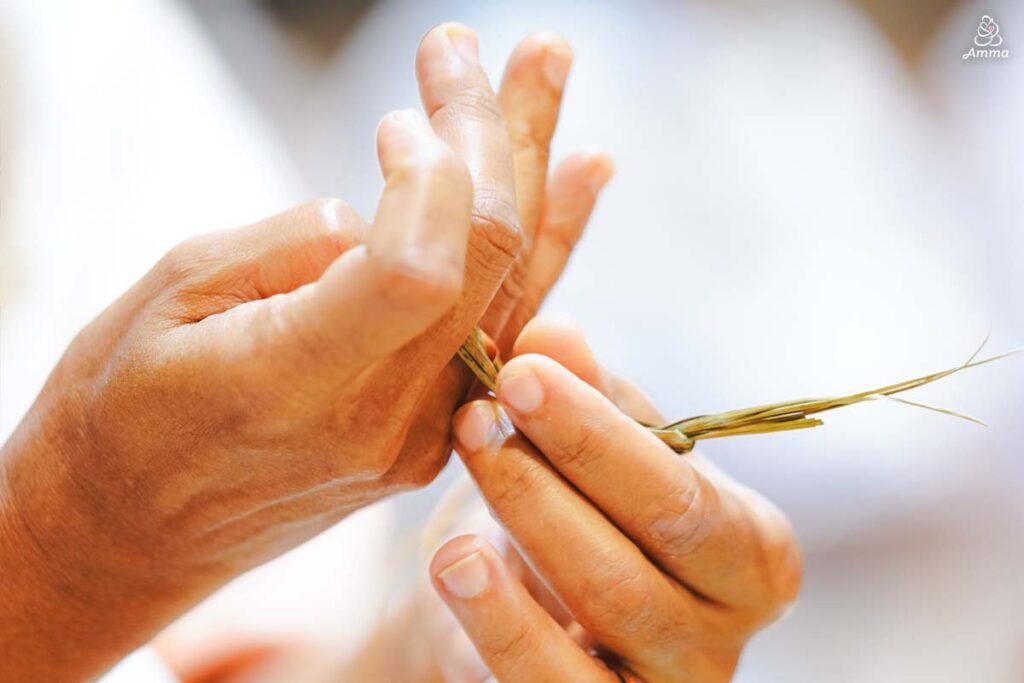
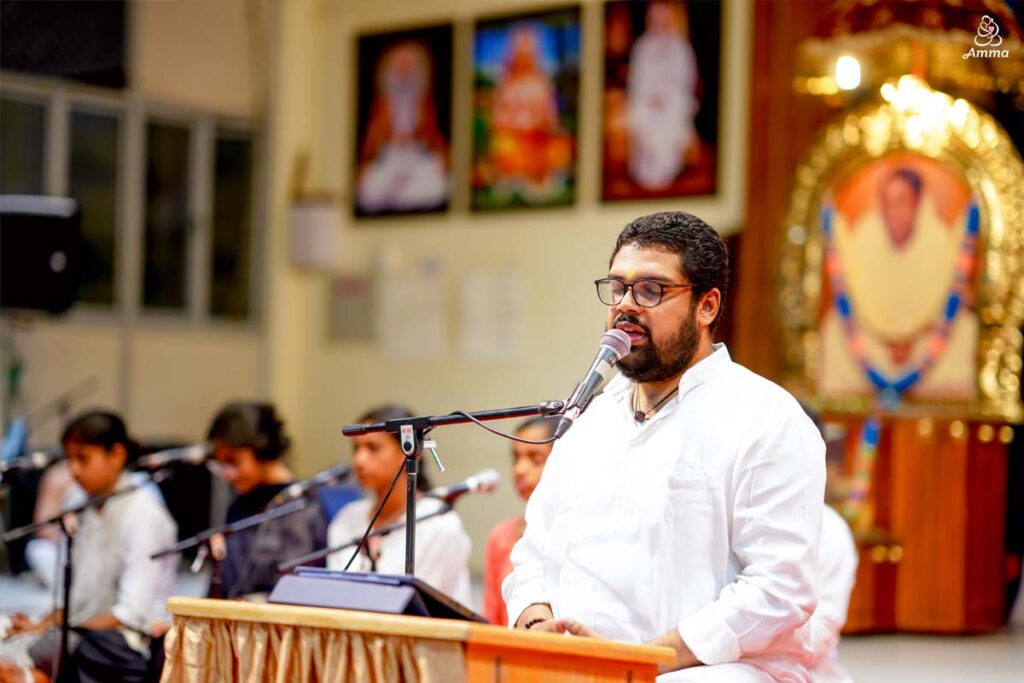
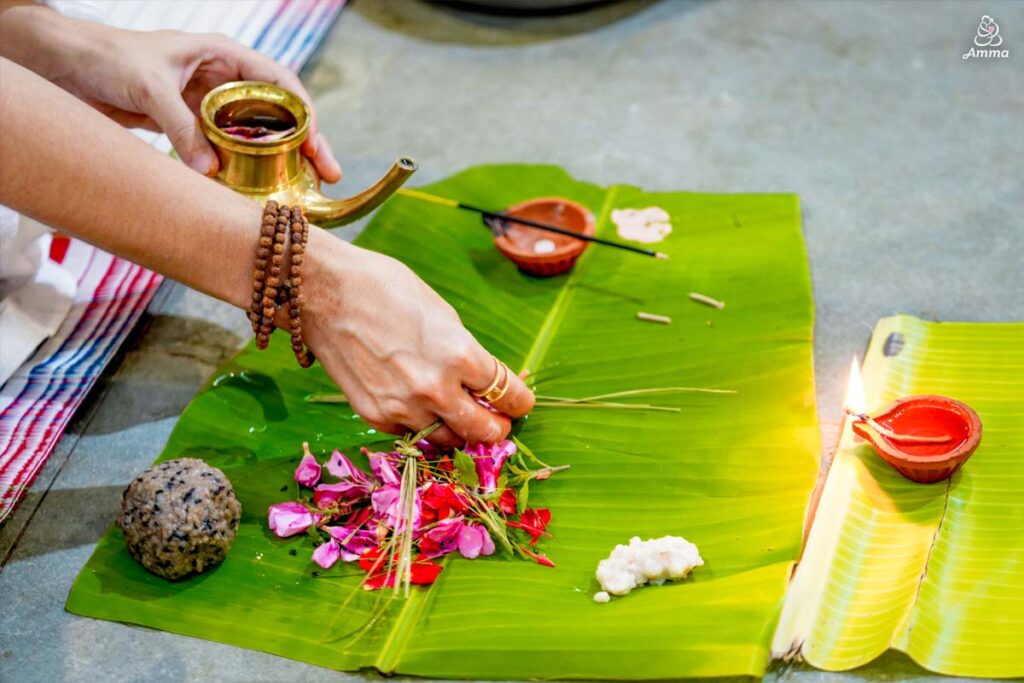
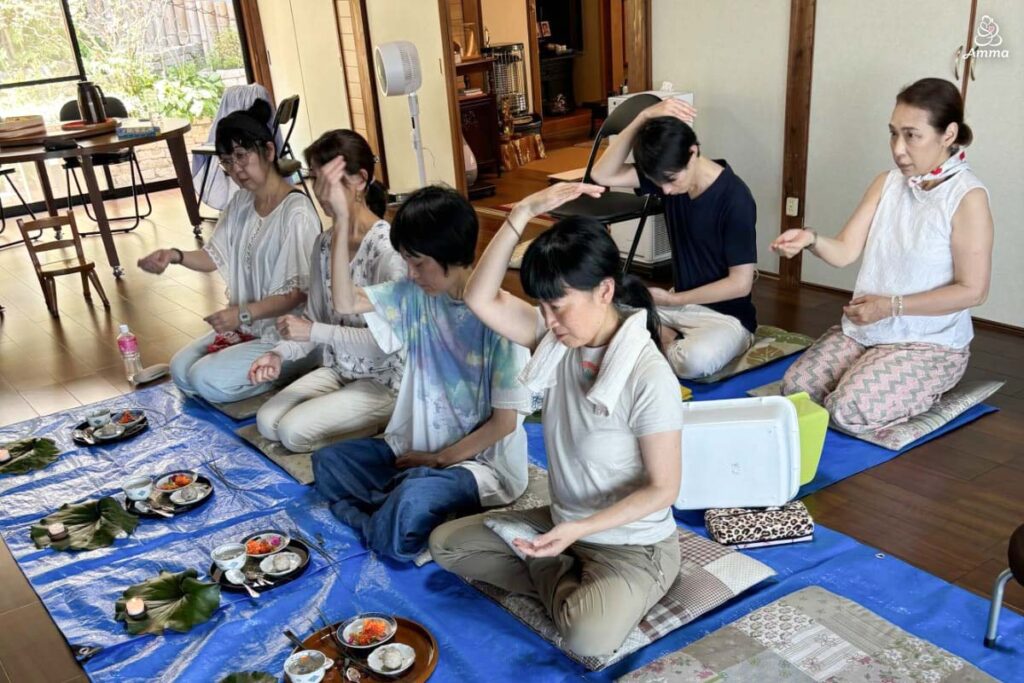
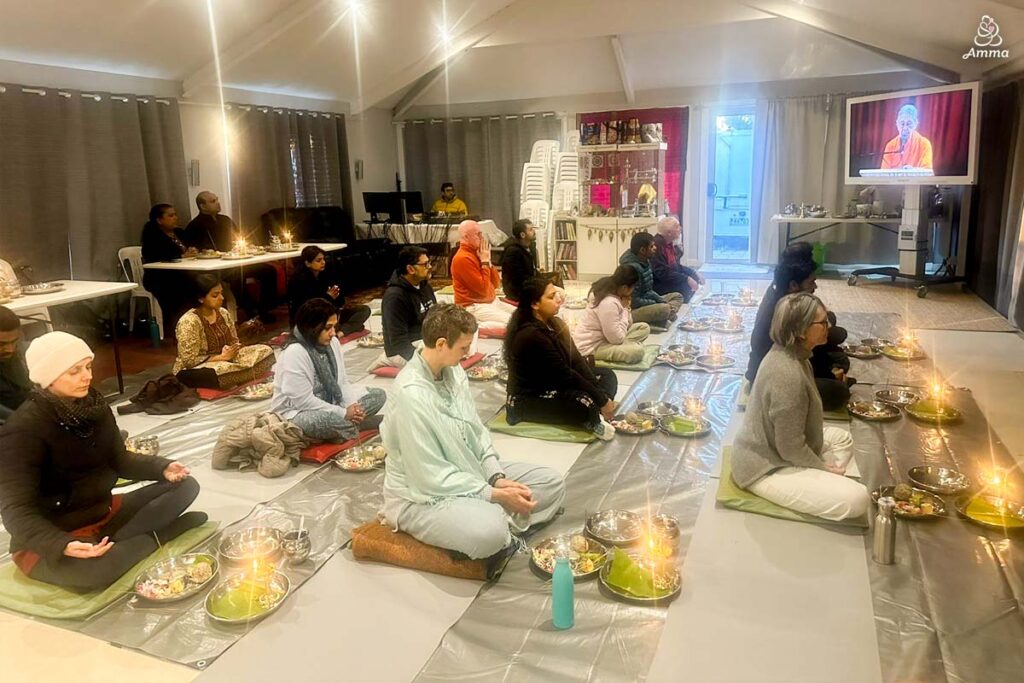
In the past, Amma has explained, “We always have a thought of only getting, never of giving to others. We grew up because our parents have been giving to us. Now whatever we may give, we cannot repay for what they have given us.
“Through this ritual, we are showing our respect, our gratitude, towards our departed ancestors. Giving verbal thanks only remains as words, and doesn’t get translated into action. By partaking in this ritual, we are performing action–spending some time for others, spending some money for them, and chanting mantras. We therefore get purified, creating positive vibrations.”
In modern scientific terms, we owe our genetic lineage to our parents and ancestors. Each one is actually present as a genetic characteristic, inborn talent, or trait. This approach extends to multiple lives.
By thinking of our deceased ancestors with gratitude and trying to aid in their emancipation, we are also helping to free ourselves from various karmic predispositions. Vavubali becomes an external expression of selfless prayers for the healing of others, and an internal expression of healing our own selves.


